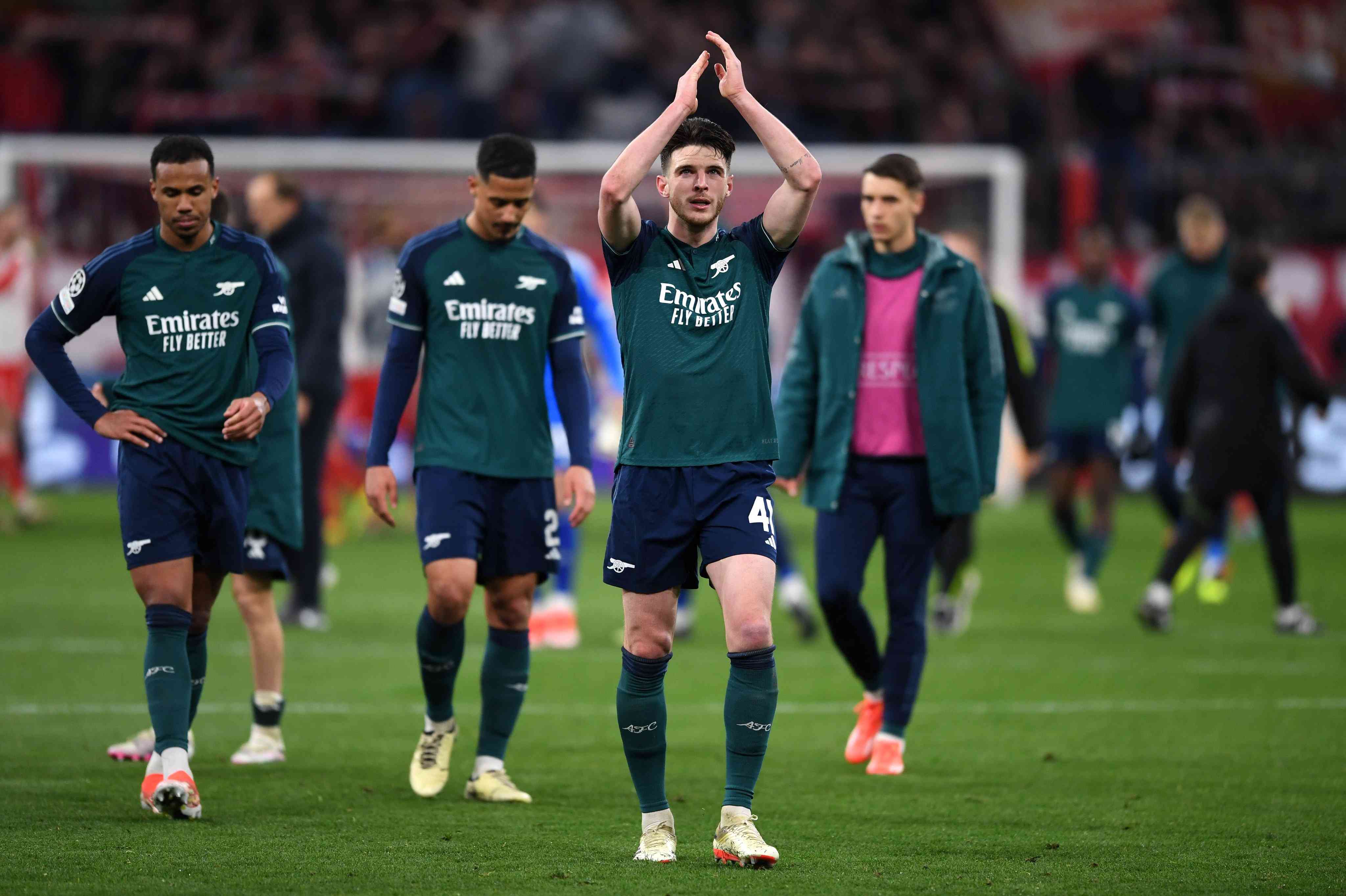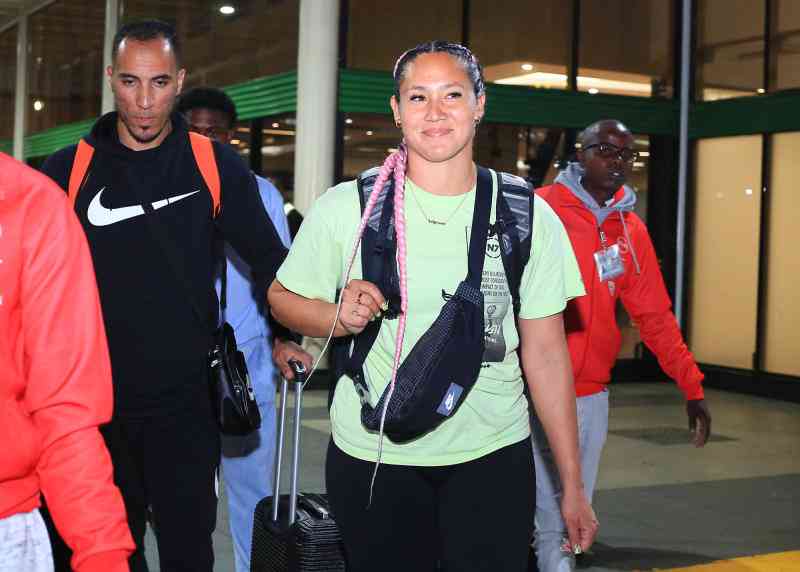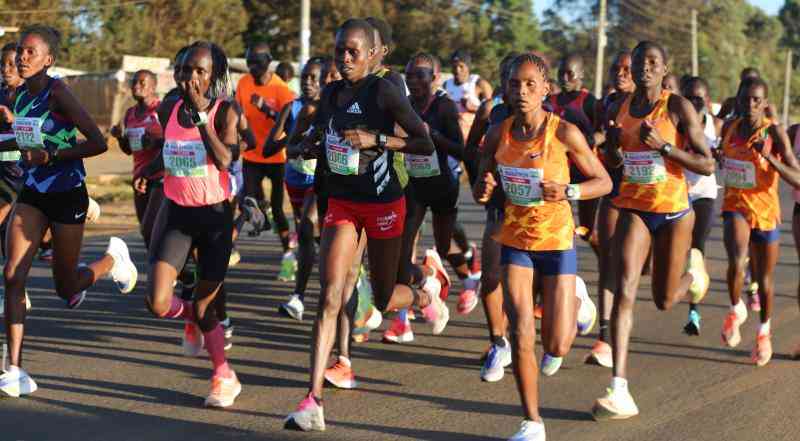 |
|
Gor Mahia vs AFC leopard darby in 2012.PHOTO/DENNIS OKEYO |
Four years ago, five football families in Kenya received the news that every family dreads to receive when their loved one goes to watch a football match. Their loved ones were not ever going to come back home.
I sometimes try to picture what it is like to receive such news. It must easily be the worst day in these families’ lives to realise that your loved ones made not only the sports headlines but also the main headlines on the news. The results on the pitch do not matter. The calls by the referee do not matter. The tactics of the coaches do not matter.
At a stampede that occurred at the Nyayo National Stadium on a rainy Saturday evening on October 23, 2010, the football fraternity in Kenya lost David Ochieng’ Oundo, Victor Juma Okoth Otieno, Winnie Karimi Kinyua, Franklin Onimu Kiribwa and Stephen Ochieng’ Onyango.
The safety of those who attend local football matches was in focus for a couple of days and as is normal in this part of the world, the news reporters moved on to other stories. After all, it is expected, life does go on and we wouldn’t talk about a tragedy when other stories need to be covered.
The memorials that you would expect to be held each year, the moments of silence in memory of those departed, the quest for justice for the families of the bereaved - these are some of the things that would, in a civilised society, be expected to be arranged on this sad day.
The failure to qualify for the Cup of Nations, the supposed embezzlement of funds by football administrators, the lack of football fans in our stadia, the referees’ mistakes during matches – these are the other priorities for our football pundits.
Nowadays, you will hear people talk about ‘the biggest problem that is affecting the local football scene is...’ and then mouth off a few of these so-called priorities.
MINOR STAMPEDE
Sponsors of football do not seem to worry about your safety as a football fan. Indeed, without any credible safety procedures, they would implore you with a clarion call ‘let us go to the stadium’.
Over the past weekend, football hooligans caused the abandonment of the matches of the country’s most supported clubs. A minor stampede occurred and some of the fans were injured while TV cameras showed some fans clutching babies and shielding them from the tear gas. The match officials were also at the centre of attack by the hooligans.
Ordinarily, the script usually involves the club whose fans are said to have caused mayhem in the stadium releasing a press statement denying that these were their fans. Then the football supremos will breathe fire and brimstone and then hand out a slap on the wrist.
Last year, one of the top clubs indicated it was not their policy to comment on refereeing decisions but follow any contested decisions through appeal mechanisms. The policy seems to have changed with each statement by the officials of the club targeting refereeing decisions without any proper appeal. The blame game is back!
While the blame game goes on, there would be no suspension of football activities in the country; no crisis meetings of all parties involved in hosting a football match; no proper inquiries by independent agencies and certainly no stone turned.
This has been handled differently on other countries. The football tragedies England were a watershed moment for football in the country and the government got involved with the sometimes criticised Football Spectators Act, 1989. However, the hooliganism was controlled when the people responsible for safety acknowledged they had to do more.
I was horrified to note that during the KPL Awards in November 2013, the Cabinet Secretary for Sports dismissed the calls by the federation for a special police unit to combat hooliganism as rubbish and said the federation and clubs in Kenya should stamp out hooliganism without involving government agencies.
With this kind of attitude, is it any wonder that the hooliganism issues still persist? Is it also any wonder that clubs remain defensive any time their supporters cause chaos? I dare say that not a single football club in Kenya has the capacity to host a football match with spectators. Not even one club.
Indeed one of the remarkable things was that one of the football clubs says in its defence in an ongoing case about one of the Nyayo five that anyone who attends a football match in Kenya voluntarily takes the risk. While this may be translation lost in legal jargon, it shows the general attitude of football administrators towards the hooliganism trend.
If football clubs do not have the capacity to guarantee safety of their fans at the matches, they should clearly state so and only admit the capacity they can handle. If a club can only police five fans, they should only admit those five fans into the stadium and spare us another tragedy in the making.
We owe the Nyayo five some justice so that their deaths may not be in vain. The government inquest on their deaths is ongoing four years down the line. A case for compensation is still pending in the courts four years later with parties in the dispute still shifting blame to each other.
And hooliganism is still ongoing. This is no way to remember the Nyayo five.
-The writer is former AFC Leopards Deputy Secretary General
 The Standard Group Plc is a multi-media organization with investments in media
platforms spanning newspaper print operations, television, radio broadcasting,
digital and online services. The Standard Group is recognized as a leading
multi-media house in Kenya with a key influence in matters of national and
international interest.
The Standard Group Plc is a multi-media organization with investments in media
platforms spanning newspaper print operations, television, radio broadcasting,
digital and online services. The Standard Group is recognized as a leading
multi-media house in Kenya with a key influence in matters of national and
international interest.
 The Standard Group Plc is a multi-media organization with investments in media
platforms spanning newspaper print operations, television, radio broadcasting,
digital and online services. The Standard Group is recognized as a leading
multi-media house in Kenya with a key influence in matters of national and
international interest.
The Standard Group Plc is a multi-media organization with investments in media
platforms spanning newspaper print operations, television, radio broadcasting,
digital and online services. The Standard Group is recognized as a leading
multi-media house in Kenya with a key influence in matters of national and
international interest.







